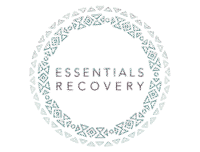Addiction is often referred to as a family disease—not just because it impacts every member of the household, but also because recovery requires family involvement to be truly successful. The effects of substance use ripple outwards, damaging trust, communication, and emotional stability within families. While individual treatment focuses on the person with the addiction, family counseling is an essential component that addresses the broader emotional wounds caused by substance abuse.
Family counseling creates an opportunity for loved ones to process pain, rebuild relationships, and learn healthier ways to support recovery. By promoting understanding and cooperation, it helps everyone involved take active steps toward healing, accountability, and long-term stability.
Understanding the Family Dynamic in Addiction
Addiction can change family dynamics in significant ways. Roles may shift as family members attempt to cope or protect themselves from the chaos of substance use. For example, one person might become the caretaker, constantly trying to “fix” the situation, while another becomes distant or overly responsible to compensate for instability.
These roles can lead to dysfunctional communication, unresolved resentments, and emotional disconnection. Over time, family members may develop codependent behaviors or coping mechanisms that feel necessary but ultimately contribute to an unhealthy environment.
Family counseling aims to identify these dynamics, bring them into the open, and help the family understand how their patterns may be reinforcing the problem—or could be used as part of the solution.
The Goals of Family Counseling in Recovery
The main purpose of family counseling is to foster healing and healthy interaction. Some key goals include:
- Improving communication skills
- Resolving conflicts and misunderstandings
- Rebuilding trust
- Reducing codependent behaviors
- Educating family members about addiction and recovery
- Creating a supportive environment that encourages long-term sobriety
Family therapy sessions are typically guided by a licensed therapist who creates a safe space for open discussion, emotional expression, and conflict resolution. The goal isn’t to assign blame but to create clarity and develop mutual support.
Common Issues Addressed in Family Therapy
Family counseling touches on a range of emotional and relational challenges that arise during and after addiction. Some of the most common topics include:
Trust and Betrayal
Addiction often involves secrecy, broken promises, and emotional harm. Rebuilding trust is a slow process that requires both accountability from the individual in recovery and openness from the rest of the family.
Enabling and Codependency
Family members may unintentionally enable the addiction by covering for the person, giving money, or minimizing consequences. Counseling helps identify these behaviors and replace them with more supportive, boundary-driven strategies.
Guilt and Shame
Many families carry deep shame related to addiction. Parents may feel responsible, siblings might harbor guilt for not helping more, and partners could internalize blame. Therapy helps reframe these feelings and promotes forgiveness and self-compassion.
Parenting Challenges
If children are involved, the impact of addiction can be especially long-lasting. Family therapy often includes guidance on how to rebuild secure attachments, restore healthy parenting, and address the needs of children during recovery.
Grief and Loss
Families may grieve the time lost to addiction, the change in family roles, or the breakdown of relationships. Therapy provides a space to acknowledge this grief and begin the process of emotional recovery.
Involving the Family During Different Stages of Recovery
The role of family counseling evolves throughout the recovery journey. In the early stages, it focuses on education and stabilization. As recovery progresses, therapy shifts to deeper healing, reconciliation, and planning for the future.
During Detox and Early Recovery
Initially, family members may be overwhelmed, confused, or skeptical about treatment. Counseling during this phase often involves education about the disease of addiction, what to expect in recovery, and how to avoid enabling behaviors. It helps families understand that recovery is a process, not an event.
In Outpatient or Residential Treatment
Family therapy is often incorporated into treatment programs to ensure that the home environment aligns with recovery goals. This is when discussions around boundaries, expectations, and communication are most crucial. The family’s active participation can greatly improve the chances of long-term success.
Post-Treatment and Long-Term Recovery
As the person in recovery returns to daily life, new challenges emerge—managing stress, avoiding triggers, and maintaining healthy habits. Family counseling during this time focuses on relapse prevention, coping strategies, and maintaining a supportive environment. It’s also an opportunity to continue strengthening relationships and addressing any lingering issues.
Therapy Models Used in Family Counseling
Different therapeutic approaches may be used depending on the family’s needs and the therapist’s expertise. Some common models include:
Structural Family Therapy
This approach focuses on realigning family roles and boundaries. The therapist helps identify unhealthy patterns and creates interventions that promote more functional interactions.
Strategic Family Therapy
Here, the therapist offers practical solutions to current problems within the family system. Emphasis is placed on changing specific behaviors that are contributing to dysfunction.
Multidimensional Family Therapy
Originally developed for adolescents with substance use disorders, this model addresses various influences—family, peers, school, and community—to promote healthier decision-making and family relationships.
Cognitive Behavioral Family Therapy
This approach combines traditional CBT with family dynamics, helping members change distorted beliefs and behavior patterns that contribute to conflict or substance use.
The Benefits of Family Counseling
The rewards of family counseling extend beyond improved communication. When the whole family is engaged in the recovery process, everyone benefits:
- Stronger emotional bonds that support long-term healing
- Improved mental health for all family members
- Reduced risk of relapse due to increased accountability and understanding
- Better problem-solving and conflict resolution abilities
- Increased hope and motivation for rebuilding a healthier life together
Family counseling doesn’t just support the person in recovery—it promotes wellness for everyone involved.
Overcoming Resistance to Family Therapy
It’s not uncommon for family members to resist counseling. They may feel it’s unnecessary, fear confrontation, or believe the person with the addiction is the only one who needs help.
However, families that engage in therapy often report greater satisfaction with the recovery process and improved family functioning. Therapists are trained to guide sessions in a non-judgmental way, ensuring that everyone feels heard and respected.
Education is a powerful tool for reducing resistance. Once families understand that addiction is a chronic illness, not a moral failure, they are often more open to participating in treatment.
What to Expect During Family Counseling Sessions
Each session may look different depending on the goals and dynamics of the family. However, most sessions include:
- A check-in to gauge progress and emotional states
- Open discussion guided by the therapist
- Exercises to improve communication and problem-solving
- Homework assignments or goals to practice between sessions
Therapists may meet with the entire family or just specific members, depending on the issues being addressed. The structure is flexible and adapts to each family’s needs.
Making Family Counseling a Priority
Recovery is not just about sobriety—it’s about rebuilding a life worth staying sober for. Family plays a pivotal role in that journey. By investing time and effort in family counseling, loved ones can mend relationships, reduce conflict, and create a more supportive environment that nurtures ongoing recovery.
Healing takes time, and the process may not always be easy. But with commitment, compassion, and professional guidance, families can emerge from the shadow of addiction stronger, healthier, and more connected than ever.
Taking the First Step Toward Healing Together
If you or someone you love is navigating addiction recovery, don’t underestimate the value of family counseling. It offers a pathway not just for the individual in treatment, but for the entire family system to heal, grow, and move forward together.
Whether you’re just starting the recovery process or have been on the journey for a while, professional guidance can help mend broken connections and foster new beginnings. Taking the step toward family therapy might be one of the most impactful decisions you make in the recovery journey. Call us today at 855-509-1697.



